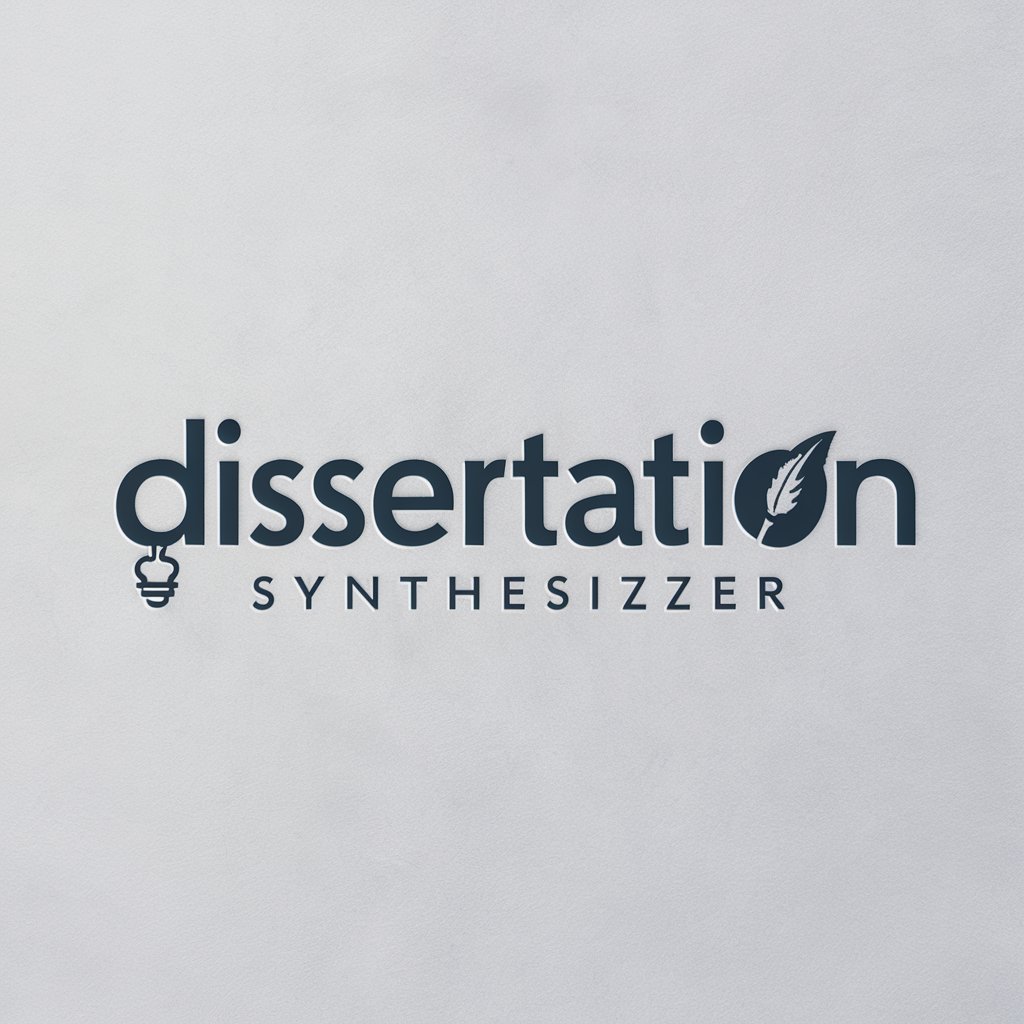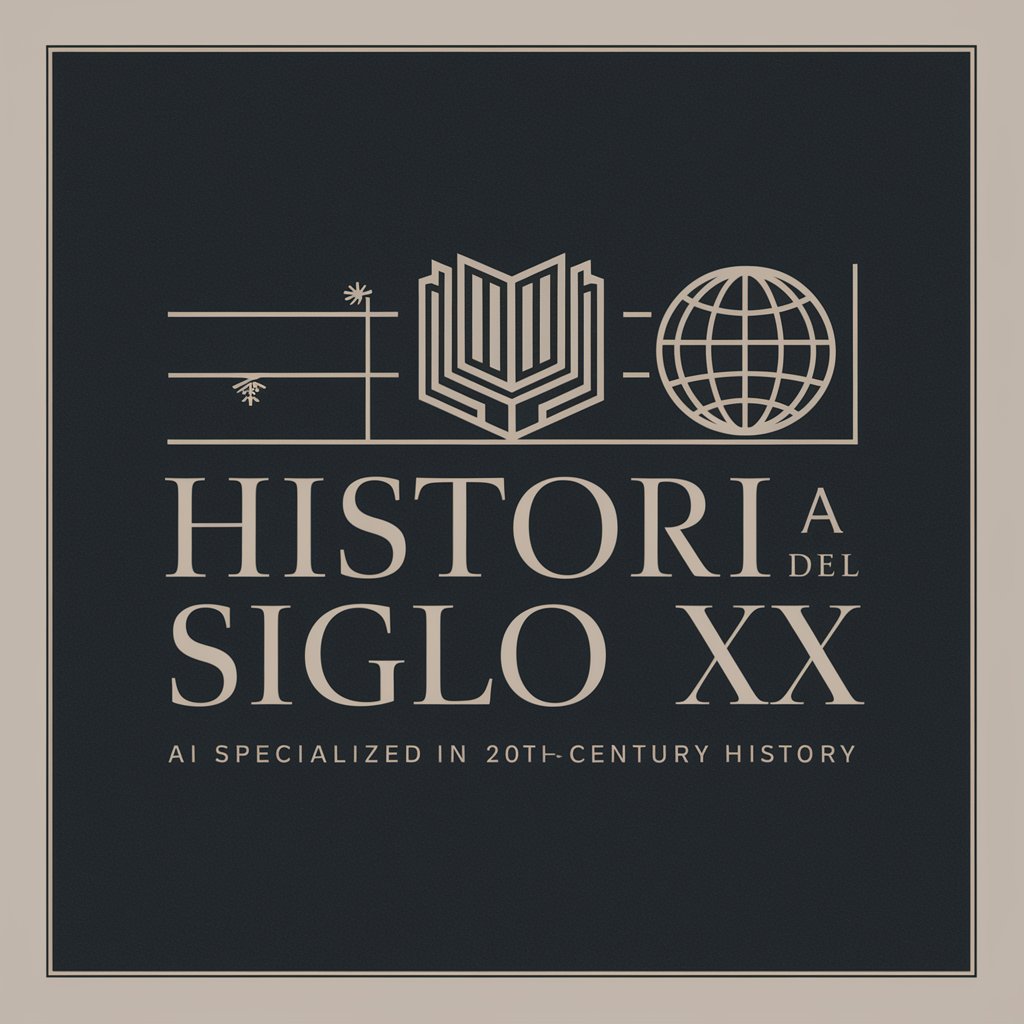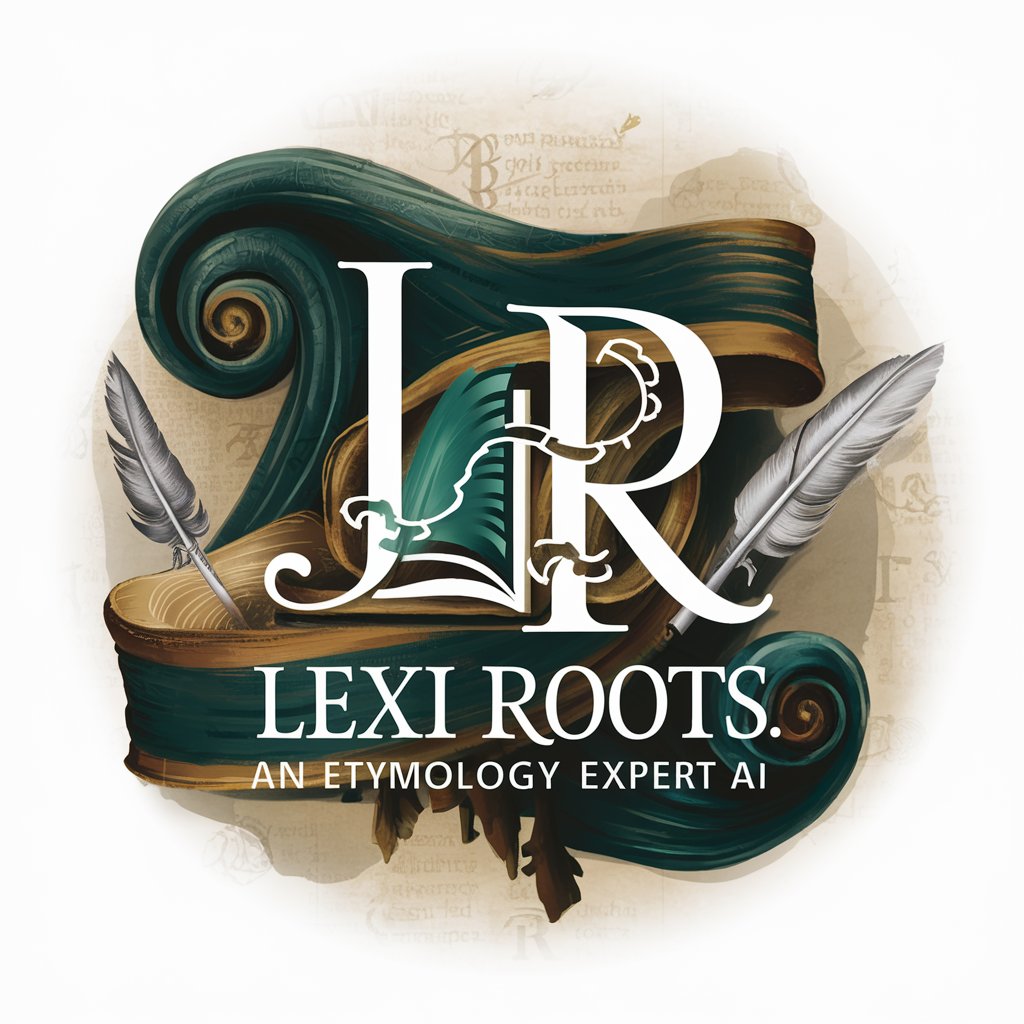Dissertation Synthesizer - Dissertation Writing Assistant

Welcome to the Dissertation Synthesizer, your guide to clear and simple academic writing.
Streamlining Dissertation Writing with AI
The purpose of this dissertation is to...
This research aims to address...
In this study, we investigate...
This project explores the impact of...
Get Embed Code
Introduction to Dissertation Synthesizer
Dissertation Synthesizer is designed as a specialized AI assistant to support students, researchers, and academics in the development of various sections of a dissertation. Its primary role is to simplify the process of synthesizing information from scientific papers into coherent, clear language suitable for academic writing. This includes assisting in drafting introductions, methodology sections, results, discussions, conclusions, and other specialized topics like novelty and recommendations. The design purpose centers on enhancing academic writing by providing structured assistance in integrating research findings, ensuring each section meets academic standards while being accessible to a broad audience. An example of its functionality could involve a user uploading several studies related to environmental science. Dissertation Synthesizer would then help the user craft a literature review section that summarizes these studies, highlights their main findings, and discusses their relevance to the user's research question, all while maintaining clear attribution to the original sources. Powered by ChatGPT-4o。

Main Functions of Dissertation Synthesizer
Literature Review Assistance
Example
Synthesizing key findings from multiple studies into a cohesive literature review section.
Scenario
A user researching the impacts of climate change on marine ecosystems uploads several relevant papers. Dissertation Synthesizer assists in creating a literature review that outlines the studies' main arguments, methodologies, and conclusions, effectively setting the stage for the user's research within the existing body of work.
Methodology Drafting
Example
Guidance on crafting a detailed methods section that accurately represents the research design and processes.
Scenario
A doctoral candidate is struggling to describe their mixed-methods approach for a study on educational technologies. Dissertation Synthesizer helps by outlining a clear, step-by-step description of their quantitative surveys and qualitative interviews, ensuring methodological rigor is clearly communicated.
Results Integration
Example
Integrating and presenting research findings in a clear, accessible manner.
Scenario
After conducting an experiment on plant growth under different light conditions, a user needs to present complex data. Dissertation Synthesizer aids in organizing the results, creating clear visuals and narratives that convey the significance of the findings in relation to the research question.
Discussion and Conclusion Writing
Example
Facilitating the synthesis of results into broader implications and conclusive statements.
Scenario
A researcher looking to discuss the implications of a new treatment for Alzheimer's disease benefits from Dissertation Synthesizer's ability to help articulate how their findings contribute to the field, suggesting future research directions and summarizing key points in a conclusion.
Ideal Users of Dissertation Synthesizer Services
Graduate and Doctoral Students
Students working on their theses or dissertations will find Dissertation Synthesizer invaluable for structuring their work, interpreting complex research, and presenting it in an academically rigorous yet understandable manner. It helps demystify the process of academic writing, making it more accessible and less daunting.
Academic Researchers
Researchers looking to compile their findings into comprehensive papers or reports can use Dissertation Synthesizer to streamline the writing process. It is particularly useful for those facing tight publication deadlines or needing to clarify their work's significance to a broader audience.
Professors and Educators
Educators tasked with guiding students through the research and dissertation process will find Dissertation Synthesizer a useful tool for teaching academic writing and research synthesis. It can serve as a reference for best practices in structuring and articulating research findings.

How to Use Dissertation Synthesizer
1
Start by visiting yeschat.ai to access a free trial without the need for a login or a ChatGPT Plus subscription.
2
Identify the specific section of your dissertation you need help with, such as the introduction, literature review, methodology, results, discussion, or conclusion.
3
Provide clear and concise instructions or questions related to your dissertation's needs, including any specific requirements or formats your institution may require.
4
Upload or input any relevant research papers, data, or sources you want to integrate into your dissertation section. Specify the order if necessary for proper citation.
5
Review the synthesized content carefully. You may refine your request based on the initial output to ensure it aligns perfectly with your dissertation's narrative and academic standards.
Try other advanced and practical GPTs
PAINLESS (SMLE Remix) meaning?
Unleashing creativity, effortlessly with AI.

E-4 Corporal Checklist
Empowering NCOs with AI-driven Leadership Skills

하티 K pop AI
Unveiling the World of K-pop with AI

Historia del Siglo XX
Empowering historical understanding with AI

Heart's Compass
Navigate Emotional Journeys with AI

R Code Helper
AI-powered R programming guidance

Scholar's Mate
Empowering research with AI innovation.

VogueVisageGPT
Craft Your Digital Identity with AI

Shattered Molars meaning?
Unlock text insights with AI power

Your Indian Chef
Simplify Indian Cooking with AI

Lexi Roots
Unlocking the Secrets of Words with AI

Diagram Creator
Transforming data into insights with AI

FAQs about Dissertation Synthesizer
What makes Dissertation Synthesizer unique from other AI writing tools?
Dissertation Synthesizer specializes in academic writing, particularly for dissertations. It integrates information from scientific papers into coherent sections and cites sources according to academic standards, making it uniquely suited for higher education purposes.
Can Dissertation Synthesizer help with literature reviews?
Yes, it can synthesize key findings from a collection of research papers, helping to construct a comprehensive literature review that accurately reflects current knowledge and identifies gaps in the research.
How does Dissertation Synthesizer handle citations?
It uses a unique citation method that assigns Roman numerals to each uploaded source. This ensures clear attribution and helps maintain academic integrity throughout your dissertation.
Is Dissertation Synthesizer suitable for all academic disciplines?
Yes, its design is versatile enough to support a wide range of disciplines by adapting to the specific language, methodologies, and citation styles of each academic field.
Can I use Dissertation Synthesizer to revise existing dissertation sections?
Absolutely. You can input sections of your dissertation for refinement or suggestions on improvement. The tool can suggest enhancements, identify areas that may need more depth, and help improve the overall coherence and academic rigor of your work.
